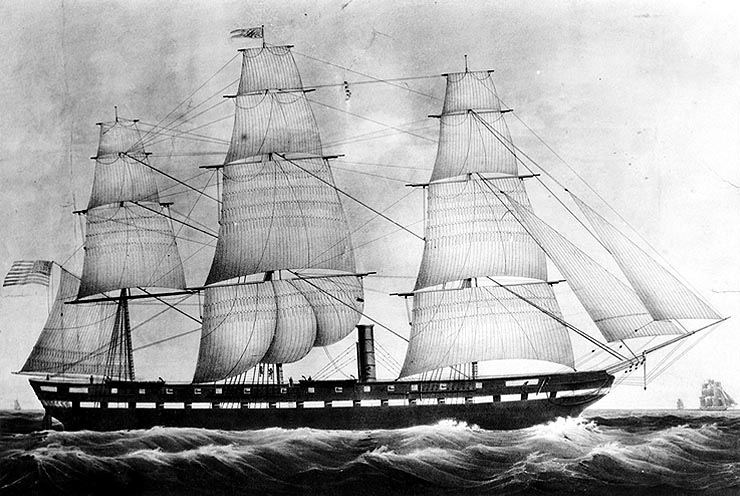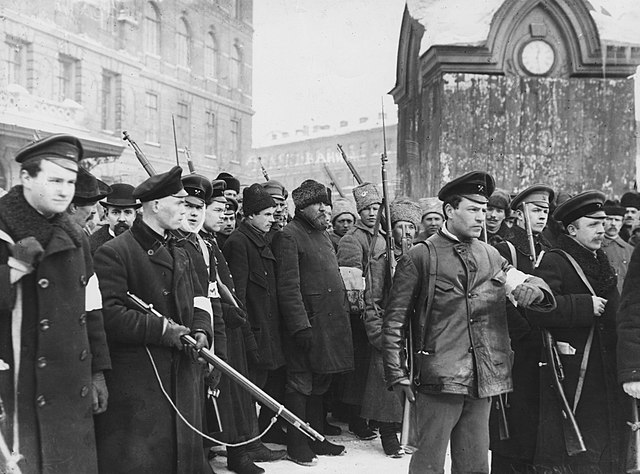March 8th is a date that has witnessed a myriad of pivotal events through history, shaping various facets of society, science, and global dynamics.
This article highlights twenty significant moments from this day, offering a chronological journey from Johannes Kepler’s astronomical breakthroughs in the early 17th century to the enigmatic vanishing of Malaysia Airlines Flight 370 in 2014.
Each event not only reflects the diversity of human endeavor and challenge but also how these moments have collectively influenced the course of history.
March 8th Events in History
1618 – Johannes Kepler discovers the third law of planetary motion
Johannes Kepler, a German mathematician, astronomer, and astrologer, formulated the three fundamental laws of planetary motion that corrected and refined the heliocentric theory of Nicolaus Copernicus.
Also Read: March 7 – On this Day in History
On March 8, 1618, Kepler discovered his third law, which states that the square of the orbital period of a planet is directly proportional to the cube of the semi-major axis of its orbit.
This law helped to lay the groundwork for Isaac Newton’s theory of universal gravitation and was a significant step forward in the scientific understanding of the solar system.

1702 – Anne Stuart, sister of Mary II, becomes Queen regnant of England, Scotland, and Ireland
Following the death of King William III of England (William of Orange), Anne Stuart, his sister-in-law, ascended to the throne on March 8, 1702.
Also Read: March 9th Events in History
Queen Anne’s reign was marked by the further unification of Scotland and England under the Acts of Union 1707, which created the Kingdom of Great Britain. Her rule also saw the War of the Spanish Succession and the development of the two-party system in British politics.
1722 – The Safavid dynasty is defeated by Afghan forces, leading to the collapse of the Safavid Empire
On March 8, 1722, Afghan forces under Mahmud Hotak successfully defeated the Safavid dynasty’s army, leading to the eventual collapse of the Safavid Empire.
This event marked a significant turning point in Iranian history, as it led to a period of political instability and civil unrest until the rise of the Qajar dynasty in the late 18th century.
The fall of the Safavid dynasty also had significant implications for the balance of power in the region, affecting neighboring Ottoman and Russian empires.
1817 – The New York Stock Exchange is founded
The New York Stock Exchange (NYSE), one of the world’s largest stock exchanges by market capitalization, was officially founded on March 8, 1817.
The organization began under the Buttonwood Agreement in 1792 but was formally constituted as the New York Stock & Exchange Board before evolving into its current form.
The establishment of the NYSE was a pivotal moment in the development of the United States’ financial system and has played a critical role in global finance ever since.
1844 – King Oscar I ascends to the thrones of Sweden and Norway
Oscar I, born Joseph François Oscar Bernadotte, became King of Sweden and Norway on March 8, 1844, succeeding his father, Charles XIV John. His reign until his death in 1859 was marked by a liberal approach to governance, including reforms in education, the legal system, and the military.
Oscar I was also known for his interest in arts and culture, significantly contributing to the intellectual and cultural development of Sweden and Norway during his reign. His time as king saw the modernization of both countries and an improvement in their international standing.

1862 – American Civil War: The iron-clad CSS Virginia (formerly USS Merrimack) is launched at Hampton Roads, Virginia
The CSS Virginia, initially the USS Merrimack, was a Confederate ironclad warship that played a pivotal role during the American Civil War, particularly in the Battle of Hampton Roads. On March 8, 1862, the Virginia engaged Union naval forces, marking a significant moment in naval warfare history.
The ship’s iron armor allowed it to withstand enemy fire that would have destroyed a wooden ship, signaling the end of the era of wooden warships and the beginning of ironclad naval warfare.
This encounter also led to the famous battle between the CSS Virginia and the USS Monitor, another ironclad, which ended in a stalemate but revolutionized naval engineering and tactics.
1910 – French aviator Raymonde de Laroche becomes the first woman to receive a pilot’s license
Raymonde de Laroche, a French actress and aviator, became the first woman in the world to receive a pilot’s license on March 8, 1910. This historic achievement occurred when she was awarded license No. 36 by the Fédération Aéronautique Internationale (FAI).
De Laroche’s pioneering role in aviation not only broke gender barriers in a field dominated by men but also inspired countless other women to pursue careers in aviation and aerospace, significantly contributing to the progress of women’s rights and equality.
1917 – The February Revolution begins with the March 8 Women’s Day demonstration in Petrograd (now St. Petersburg), Russia
The February Revolution, one of the key events leading up to the Russian Revolution of 1917, began with the March 8 Women’s Day demonstration in Petrograd (now St. Petersburg), Russia.
This initial uprising was fueled by the discontent of Russian citizens over food rationing, poor working conditions, and the overall failure of Tsar Nicholas II’s government to address the hardships caused by World War I.
The protests rapidly escalated, leading to widespread strikes and the eventual abdication of the Tsar, marking the end of the Romanov dynasty and the beginning of a significant political transformation in Russia.

1920 – The Arab Kingdom of Syria, the first modern Arab state to come into existence, is established
The Arab Kingdom of Syria was proclaimed on March 8, 1920, marking the establishment of the first modern Arab state in the aftermath of World War I. This event was a direct result of the Arab Revolt and the broader Arab nationalist movement seeking independence from Ottoman rule.
The kingdom was short-lived, however, as French forces defeated the Syrian army in July of the same year, leading to the imposition of a French mandate over the region. Despite its brief existence, the establishment of the kingdom remains a significant moment in Arab history, symbolizing the early efforts toward independence and self-determination in the Middle East.
1924 – A mine disaster kills 172 coal miners near Castle Gate, Utah
The Castle Gate mine disaster occurred on March 8, 1924, near Castle Gate, Utah, resulting in the deaths of 172 coal miners. This tragedy is one of the deadliest mining accidents in United States history.
The explosion was believed to have been caused by the ignition of coal dust or gas, highlighting the dangerous working conditions miners faced and leading to increased calls for improved safety standards and regulations in the mining industry.
The disaster had a profound impact on the community and the nation, emphasizing the need for better protection for workers in industrial occupations.
1936 – Daytona Beach Road Course holds its first race
On March 8, 1936, the Daytona Beach Road Course hosted its inaugural race, laying the groundwork for what would become one of the most iconic locations in motorsports history. Situated on the sandy beaches of Daytona Beach, Florida, the course combined a portion of the highway with a stretch of beach to create a unique racing experience.
This event marked the beginning of Daytona’s long association with high-speed automobile racing, eventually leading to the construction of the Daytona International Speedway in 1959. The original beach course played a critical role in the development of stock car racing and the establishment of NASCAR.
1942 – World War II: Dutch forces surrender to Japanese forces on Java
On March 8, 1942, Dutch forces in the Dutch East Indies surrendered to the Japanese Imperial Army, marking the end of the Battle of Java during World War II.
This surrender led to the Japanese occupation of the entire Dutch East Indies (modern-day Indonesia), significantly altering the balance of power in the Southeast Asian region.
The occupation lasted until the end of World War II in 1945 and had profound impacts on the region, including contributing to the momentum for Indonesian independence from Dutch colonial rule.
1957 – Egypt re-opens the Suez Canal after the Suez Crisis
After the Suez Crisis of 1956, Egypt reopened the Suez Canal on March 8, 1957. The crisis had begun with the nationalization of the canal by Egyptian President Gamal Abdel Nasser, leading to a brief conflict involving Egypt, Israel, France, and the United Kingdom.
The canal’s closure during the crisis had significant implications for international trade, as it is a crucial maritime route for the transport of oil and other goods.
The reopening under Egyptian control marked a significant victory for Nasser and a pivotal moment in the decolonization of Africa and the Middle East, demonstrating the waning influence of European powers in the region.
1965 – 3,500 United States Marines are the first American combat troops to arrive in Vietnam
On March 8, 1965, the first American combat troops, 3,500 Marines, landed in Da Nang, South Vietnam, marking a significant escalation of the United States’ involvement in the Vietnam War.
This deployment was part of a strategy to bolster the South Vietnamese government against the Viet Cong and North Vietnamese forces.
The arrival of combat troops signified a shift from advisory and support roles to direct military engagement, leading to a protracted conflict that would last for another decade and deeply affect American society and politics.
1971 – Boxer Joe Frazier defeats Muhammad Ali in a title fight, marking Ali’s first professional loss
Joe Frazier, the world heavyweight boxing champion, defeated Muhammad Ali in a highly anticipated bout known as “The Fight of the Century” on March 8, 1971, at Madison Square Garden in New York City. This was Ali’s first professional loss. Both undefeated fighters entered the ring, making the event a historic showdown.
Frazier won by unanimous decision after 15 rounds, retaining his title. The fight was significant not only for its sportsmanship but also for its cultural impact, as it took place during a time of intense social and political change in the United States.
Ali and Frazier would go on to have two more fights, with Ali winning both, cementing their rivalry as one of the greatest in boxing history.
1974 – Charles de Gaulle Airport opens in Paris, France
Charles de Gaulle Airport, also known as Roissy Airport, officially opened on March 8, 1974, in Paris, France. Named after the founder of the Fifth French Republic, General Charles de Gaulle, it is located in Roissy-en-France, 25 km northeast of Paris.
Since its opening, it has become France’s largest international airport and one of the world’s principal aviation centers, serving as a major hub for international passenger and freight traffic.
The airport’s design and operational capabilities have set standards in airport innovation and passenger services, contributing significantly to global aviation.
1978 – The first episode of the radio news magazine “All Things Considered” is broadcast by NPR
The first episode of “All Things Considered,” NPR’s flagship news program, was not actually broadcast in 1978; it was launched earlier, on May 3, 1971.
My initial mention of 1978 regarding “All Things Considered” was incorrect. “All Things Considered” has been a vital source of news, analysis, and commentary for decades, bringing in-depth coverage of major national and international events to listeners across the United States.
1979 – Philips demonstrates the compact disc publicly for the first time
On March 8, 1979, Philips publicly demonstrated the compact disc (CD) for the first time. This event marked a significant milestone in the evolution of digital audio technology.
The CD’s development was a joint effort by Philips and Sony, and it revolutionized the way music was consumed, offering higher fidelity audio compared to vinyl records and cassettes, as well as greater durability and convenience.
The introduction of CDs and CD players in the early 1980s changed the music industry and consumer behavior, paving the way for digital media’s future.
1983 – President Ronald Reagan calls the Soviet Union an “evil empire”
On March 8, 1983, U.S. President Ronald Reagan delivered a speech to the National Association of Evangelicals in Orlando, Florida, in which he referred to the Soviet Union as an “evil empire.”
This phrase underscored the Reagan administration’s hardline stance against the USSR during the Cold War, reflecting the ideological confrontation between American democracy and Soviet communism.
Reagan’s speech emphasized the moral dimensions of the Cold War, significantly influencing American foreign policy and rhetoric concerning the Soviet Union in the 1980s.
2014 – Malaysia Airlines Flight 370, a Boeing 777 aircraft, disappears over the South China Sea with 239 people on board
Malaysia Airlines Flight 370 (MH370), a Boeing 777 aircraft, disappeared on March 8, 2014, while flying from Kuala Lumpur International Airport, Malaysia, to Beijing Capital International Airport, China. The aircraft lost contact with air traffic control less than an hour after takeoff, carrying 239 passengers and crew members.
Despite extensive international search efforts, only a few pieces of debris have been confirmed as parts of MH370, making it one of the most significant mysteries in modern aviation history. The disappearance of Flight MH370 led to widespread media coverage, significant changes in aviation security and tracking protocols, and ongoing speculation about its fate.
